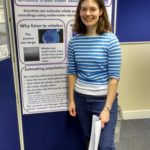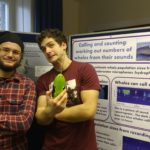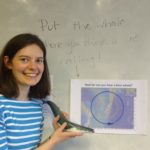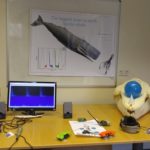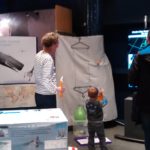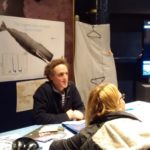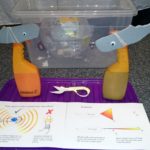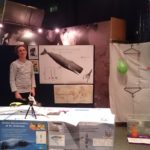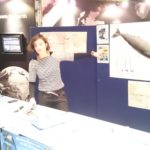“Calling and Counting: Learning about whales and dolphins from their sounds”
The SOUNDTAG lab from SMRU & CREEM participated together in Science Discovery Day as part of the British Science Week 2018. Danielle Harris, Popi Gkikopoulou, Marco Casoli and Filippo Franchini presented activities relating to marine mammal acoustics and density estimation from acoustics. How do whales and dolphins use sound? Learn about whale song, whistles and clicks of dolphins, and how these sounds are connected to communication, searching for food and moving around in the dark blue sea. Can you mimic a dolphin? Also discover how scientists use sounds to count whales and dolphins.
